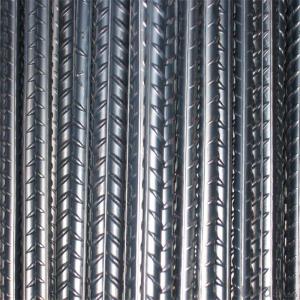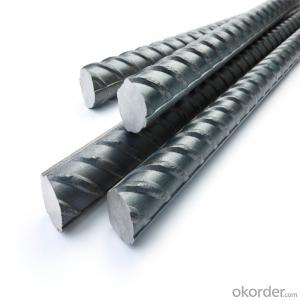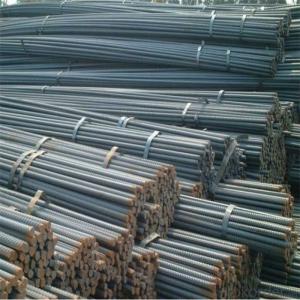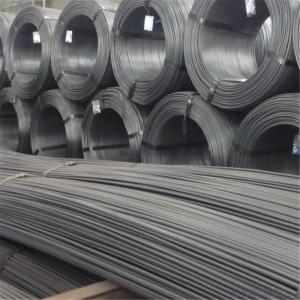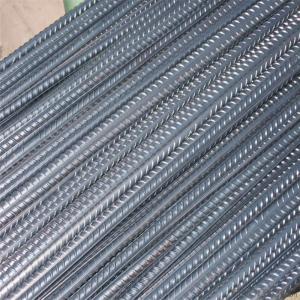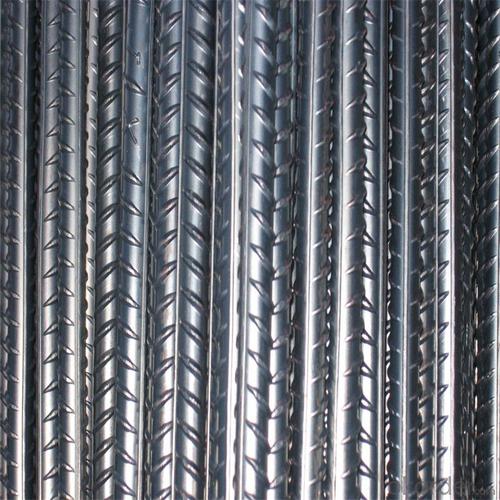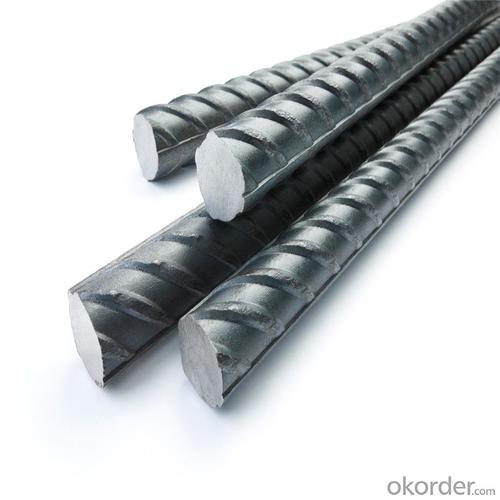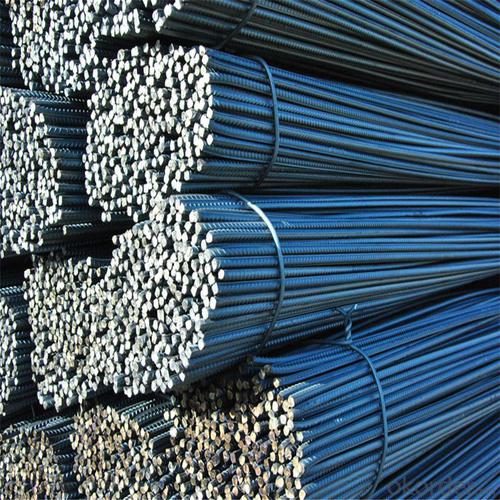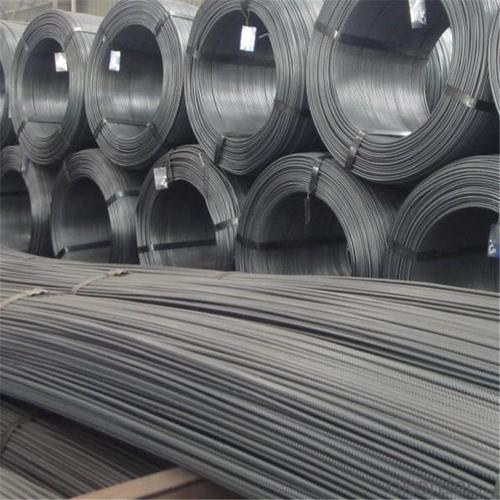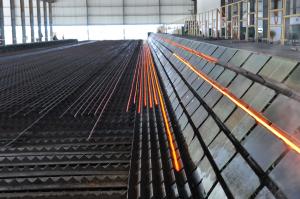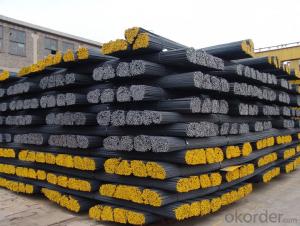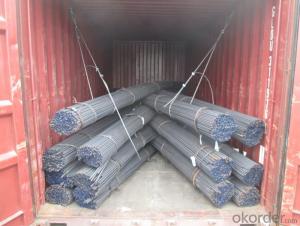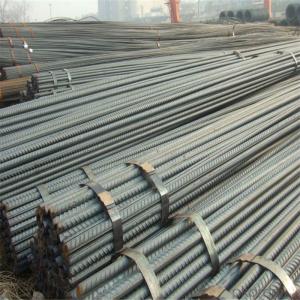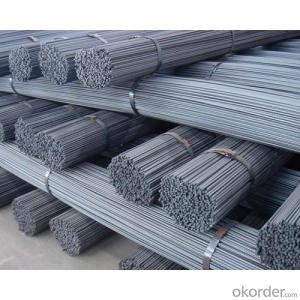SD390 Steel Rebar with JIS Standard
- Loading Port:
- Tianjin
- Payment Terms:
- TT OR LC
- Min Order Qty:
- 160 m.t.
- Supply Capability:
- 500000 m.t./month
OKorder Service Pledge
OKorder Financial Service
You Might Also Like
Specification
SD390 Steel Rebar with JIS Standard
Description of SD390 Steel Rebar with JIS Standard
1, Diameter: 5.5mm-10mm SD390 Steel Rebar with JIS Standard
10m- 40mm SD390 Steel Rebar with JIS Standard
2, Length: 6m, 9m, 12m or customized
3, Standard: GB, ASTM, AISI, SAE, DIN, JIS, EN
OEM technology - send detailed technical parameters for accurate quotation.
2, Produce Process: smelt iron - EAF smelt billet - ESR smelt billet -
hot rolled or forged to get the steel round bar and plate
3, Heat Treatment: annealing, normalizing, tempering, quenching
4, Surface Treatment: Black
5, Quality Assurance: We accept third party inspection for all orders.
You can ask testing organizations such as SGS, BV, etc. to test our products before shipping.
Chemical Composition of SD390 Steel Rebar with JIS Standard
Grade | Technical data of the original chemical composition(%) | |||||
Reinforcing steel bar HRB335 | C | Mn | Si | S | P | B |
≤0.25 | ≤1.60 | ≤0.80 | ≤0.045 | ≤0.045 | >0.0008 | |
Physics Capability | ||||||
Yield Strength(N/cm2) | Tensile Strength(N/cm2) | Elongation(%) | ||||
≥ 335 | ≥490 | ≥16 | ||||
Reinforcing steel bar HRB400 | C | Mn | Si | S | P | B |
≤0.25 | ≤0.16 | ≤0.80 | ≤0.045 | ≤0.045 | 0.04-0.12 | |
Physics Capability | ||||||
Yield Strength(N/cm2) | Tensile Strength(N/cm2) | Elongation(%) | ||||
≥ 400 | ≥ 570 | ≥ 14 | ||||
Products Show of SD390 Steel Rebar with JIS Standard
Company Information
CNBM International Corporation is the most important trading platform of CNBM group.
Whith its advantages, CNBM International are mainly concentrate on Cement, Glass, Iron and Steel, Ceramics industries and devotes herself for supplying high qulity series of refractories as well as technical consultancies and logistics solutions.


F A Q
1, Your advantages?
professional products inquiry, products knowledge train (for agents), smooth goods delivery, excellent customer solution proposale
2, Test & Certificate?
SGS test is available, customer inspection before shipping is welcome, third party inspection is no problem
3, Factory or Trading Company?
CNBM is a trading company but we have so many protocol factories and CNBM works as a trading department of these factories. Also CNBM is the holding company of many factories.
4, Payment Terms?
30% TT as deposit and 70% before delivery.
Irrevocable L/C at sight.
5, Trading Terms?
EXW, FOB, CIF, FFR, CNF
6, After-sale Service?
CNBM provides the services and support you need for every step of our cooperation. We're the business partner you can trust.
For any problem, please kindly contact us at any your convenient time.
We'll reply you in our first priority within 24 hours.
- Q: What are the different methods of preventing pitting corrosion in special steel?
- There are several methods available to prevent pitting corrosion in special steel. These techniques aim to protect the steel surface from the corrosive environment and inhibit the formation of pits. Some of the commonly used methods include: 1. Passivation: Passivation involves treating the steel surface with a chemical solution or coating to create a protective oxide layer. This layer acts as a barrier, preventing the penetration of corrosive agents and reducing the risk of pitting corrosion. 2. Alloying: By adding specific alloying elements to the steel composition, its resistance to corrosion can be improved. Elements such as chromium, nickel, and molybdenum are often used as they enhance the steel's ability to form a stable passive film and resist pitting corrosion. 3. Cathodic protection: This method involves using a sacrificial anode or applying an impressed current to the steel surface. By making the steel cathodic, it becomes less susceptible to corrosion as electrons are drawn away from it, preventing the formation of pits. 4. Coatings: Applying a protective coating to the steel surface can effectively prevent pitting corrosion. Coatings such as paint, epoxy, or polymer-based materials act as a physical barrier, shielding the steel from corrosive agents. 5. Environmental control: Controlling the environment surrounding the steel can also help prevent pitting corrosion. This includes measures such as regulating temperature, humidity, and pH levels to ensure they are within acceptable limits and inhibiting the corrosion process. 6. Regular maintenance: Regular inspection and maintenance of the steel surface are crucial for preventing pitting corrosion. Any signs of damage or deterioration should be addressed promptly to prevent further corrosion and potential pitting. It is important to note that the choice of prevention method depends on various factors such as the specific steel composition, the corrosive environment, and the intended application. Proper selection and implementation of these methods can significantly enhance the resistance of special steel to pitting corrosion, ensuring its longevity and performance.
- Q: What are the main applications of special steel in the power storage industry?
- Special steel has various applications in the power storage industry, primarily in the production of battery components and infrastructure. It is widely utilized in the manufacturing of battery cases, frames, and terminals due to its high strength, corrosion resistance, and electrical conductivity properties. Additionally, special steel is used in the construction of power storage facilities and equipment, such as racks and supports, ensuring durability and reliability of the infrastructure. Overall, the main applications of special steel in the power storage industry revolve around enhancing the performance, longevity, and safety of batteries and power storage systems.
- Q: How does special steel perform in molding applications?
- Special steel performs exceptionally well in molding applications due to its unique properties. It possesses high strength, excellent wear resistance, and superior heat resistance, making it highly suitable for withstanding the demanding conditions of molding processes. Special steel also offers excellent dimensional stability, ensuring precise and accurate moldings. Furthermore, its corrosion resistance helps to prolong the lifespan of the molds, reducing maintenance costs. Overall, special steel enhances the performance and efficiency of molding applications, resulting in high-quality and durable products.
- Q: What are the properties of wear-resistant stainless steel?
- Wear-resistant stainless steel possesses properties such as high hardness, excellent corrosion resistance, and good toughness. It is designed to withstand abrasion, erosion, and wear caused by friction, making it ideal for applications where durability and long-lasting performance are crucial, such as in industrial machinery, cutting tools, and automotive components.
- Q: How does electrical steel minimize energy losses in electrical devices?
- Electrical steel minimizes energy losses in electrical devices through its unique magnetic properties and composition. It is specifically designed to have low magnetic hysteresis and eddy current losses, resulting in reduced energy dissipation and improved overall efficiency. The grain-oriented structure of electrical steel aligns the magnetic domains along a specific direction, allowing for efficient magnetic flux flow and minimizing energy losses. Additionally, the thin insulation coating on electrical steel further reduces eddy currents, ensuring minimal power wastage and maximizing the performance of electrical devices.
- Q: How does special steel perform in high-temperature oxidation resistance?
- Special steel is specifically designed to have excellent high-temperature oxidation resistance. This type of steel contains alloying elements such as chromium, aluminum, and silicon, which form a protective oxide layer on the surface when exposed to high temperatures. This oxide layer acts as a barrier, preventing further oxidation and corrosion of the steel. The high-temperature oxidation resistance of special steel is crucial in applications where the material is exposed to extreme heat and oxidation, such as in gas turbines, heat exchangers, and furnaces. The protective oxide layer helps to maintain the integrity and strength of the steel, even under harsh conditions. Furthermore, special steel also exhibits excellent creep resistance at high temperatures. Creep refers to the gradual deformation of a material under a constant load and elevated temperatures. The unique composition of special steel provides it with the ability to resist creep deformation, enhancing its overall performance and reliability in high-temperature environments. In conclusion, special steel performs exceptionally well in high-temperature oxidation resistance due to its alloying elements and the formation of a protective oxide layer. Its ability to resist oxidation and maintain its structural integrity at elevated temperatures makes it a preferred choice for various industrial applications.
- Q: What are the main applications of special steel in the food packaging industry?
- Special steel is widely used in the food packaging industry due to its unique properties and benefits. It is primarily used for manufacturing various components of food packaging machinery, such as cutting blades, molds, and dies. The main applications of special steel in this industry include ensuring precision cutting, shaping, and forming of packaging materials, enhancing durability and resistance to wear and tear, and maintaining hygiene standards by preventing contamination and facilitating easy cleaning.
- Q: What are the different types of high-strength steel?
- There are several different types of high-strength steel, including advanced high-strength steels (AHSS), ultra-high-strength steels (UHSS), and microalloyed steels. AHSS are specifically designed to provide improved strength and formability, making them suitable for automotive applications. UHSS have even higher strength levels than AHSS and are often used in applications where weight reduction and crashworthiness are critical, such as in the aerospace industry. Microalloyed steels are a type of high-strength steel that use small amounts of alloying elements to achieve increased strength and toughness.
- Q: Can special steel be used in the marine industry?
- Yes, special steel can be used in the marine industry. Special steels such as stainless steel or corrosion-resistant alloys are commonly used in the marine industry due to their high strength, durability, and resistance to corrosion in harsh marine environments. These materials are utilized for various applications including shipbuilding, offshore structures, and marine equipment to ensure long-lasting performance and safety at sea.
- Q: What are the applications of special steel in the oil and gas supply chain?
- Special steel has various applications in the oil and gas supply chain. It is commonly used in the construction of pipelines, offshore platforms, and drilling equipment due to its high strength, corrosion resistance, and ability to withstand extreme conditions. Special steel also finds its utility in the manufacturing of valves, fittings, and connectors, ensuring efficient and leak-free operations. Additionally, it is used in the production of storage tanks and vessels, providing reliability and safety in the containment of oil and gas. Overall, special steel plays a crucial role in enhancing the durability, performance, and safety of equipment and infrastructure within the oil and gas supply chain.
Send your message to us
SD390 Steel Rebar with JIS Standard
- Loading Port:
- Tianjin
- Payment Terms:
- TT OR LC
- Min Order Qty:
- 160 m.t.
- Supply Capability:
- 500000 m.t./month
OKorder Service Pledge
OKorder Financial Service
Similar products
Hot products
Hot Searches
Related keywords
